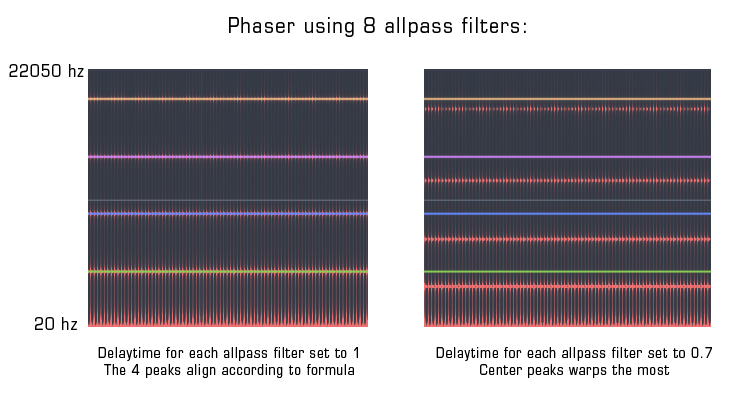I have a conventional phaser setup with allpass filters and feedback.
I can calculate the peaks frequencies of the phaser when the allpass delays are set to 1 (then they work as simple one sample delays). Adding two allpass delays will give an additional peak, and the peak frequencies for peaks i = 1 to N is found by:
(i / (N + 0.5) ) * SampleRate / 2
where N is the number of peaks (and the number of allpass-delays divided by 2). So if you have a 6-stage phaser at 44100, the 3 peaks will be at:
(1 / (3 + 0.5) ) * 44100 / 2 = 6300
(2 / (3 + 0.5) ) * 44100 / 2 = 12600
(3 / (3 + 0.5) ) * 44100 / 2 = 18900
However, these frequencies start warping when the allpass-delays are not set to 1, then how:

How can I calculate the peak frequencies when the allpass-delays are not set to 1?
